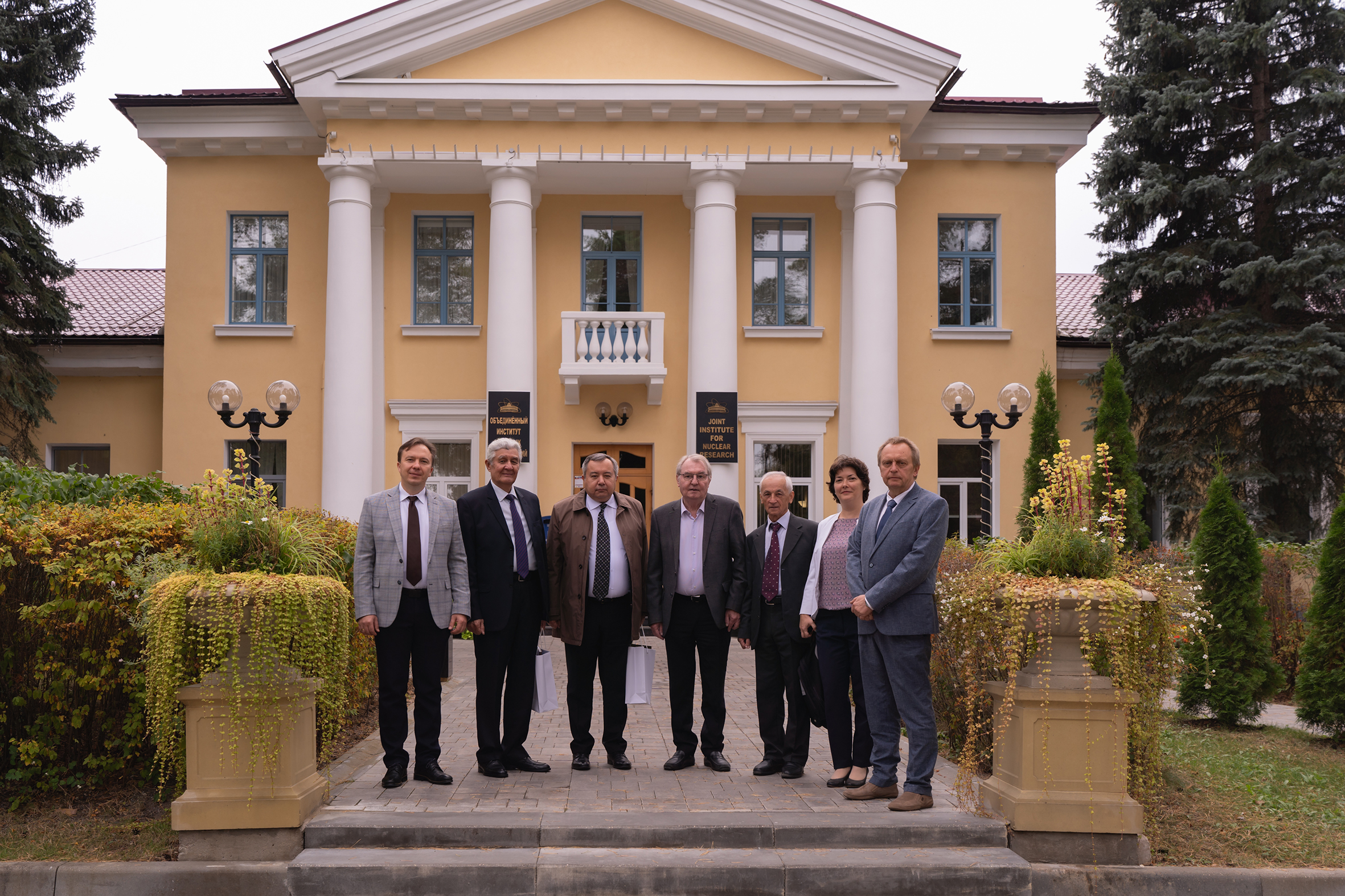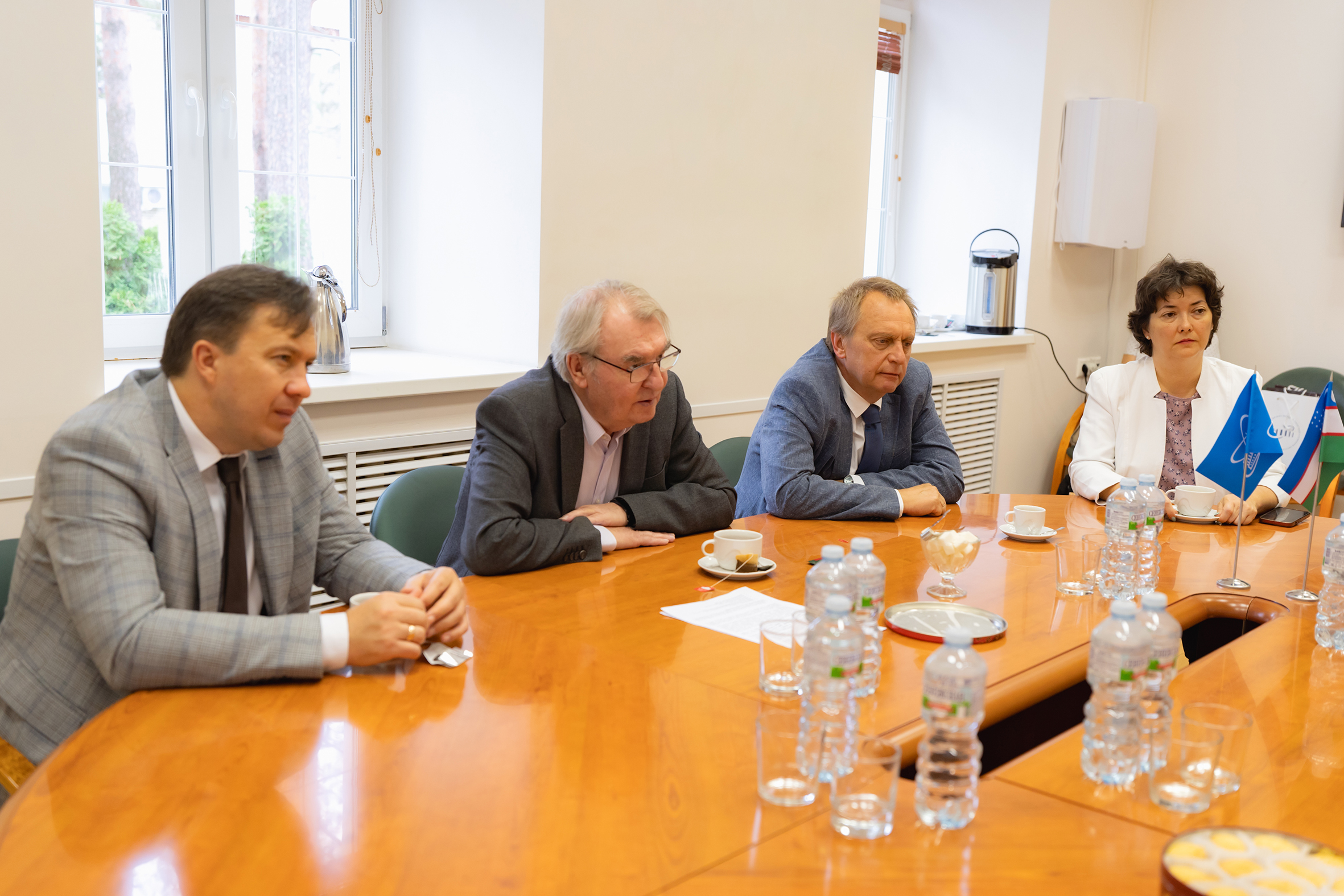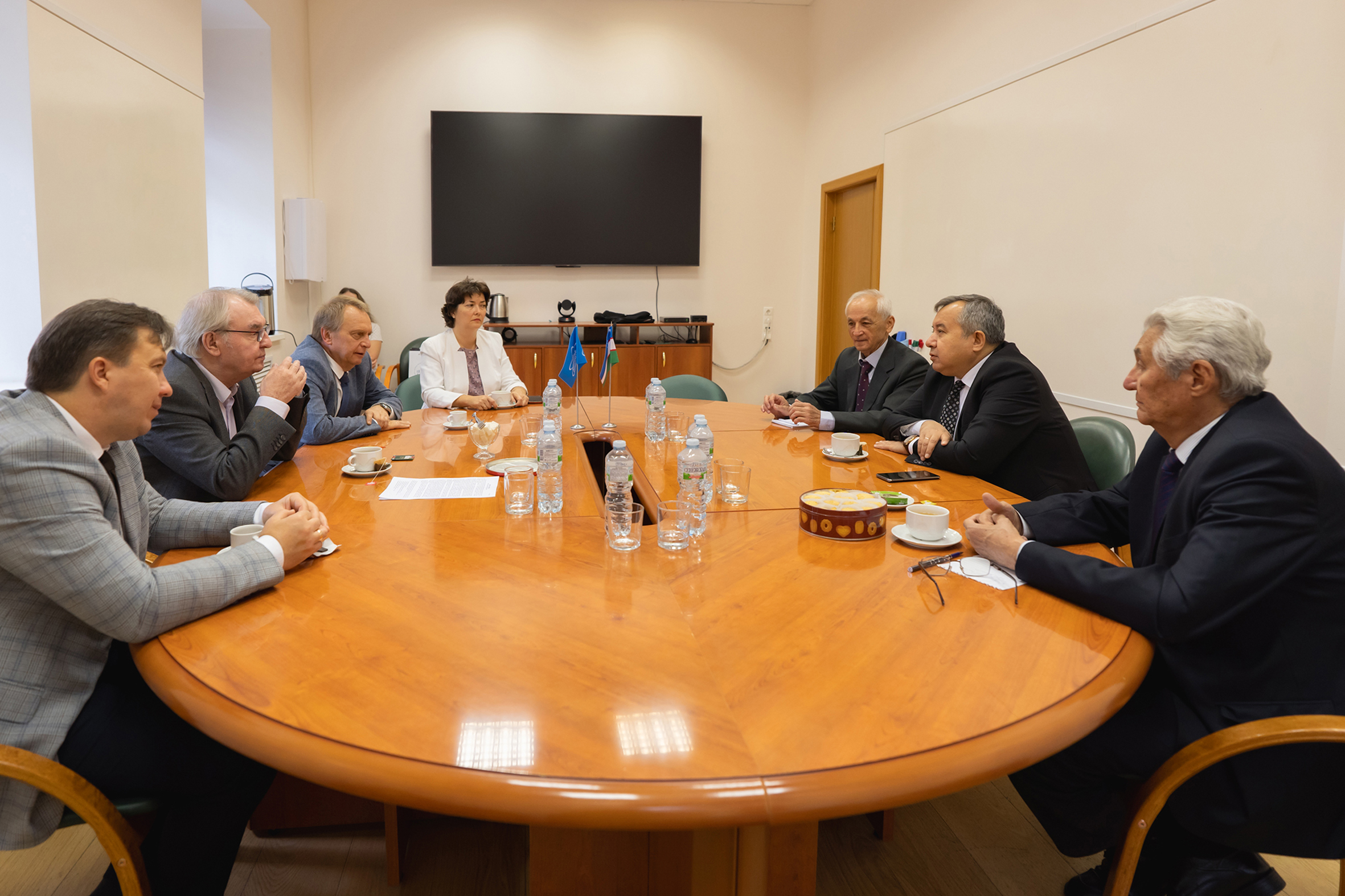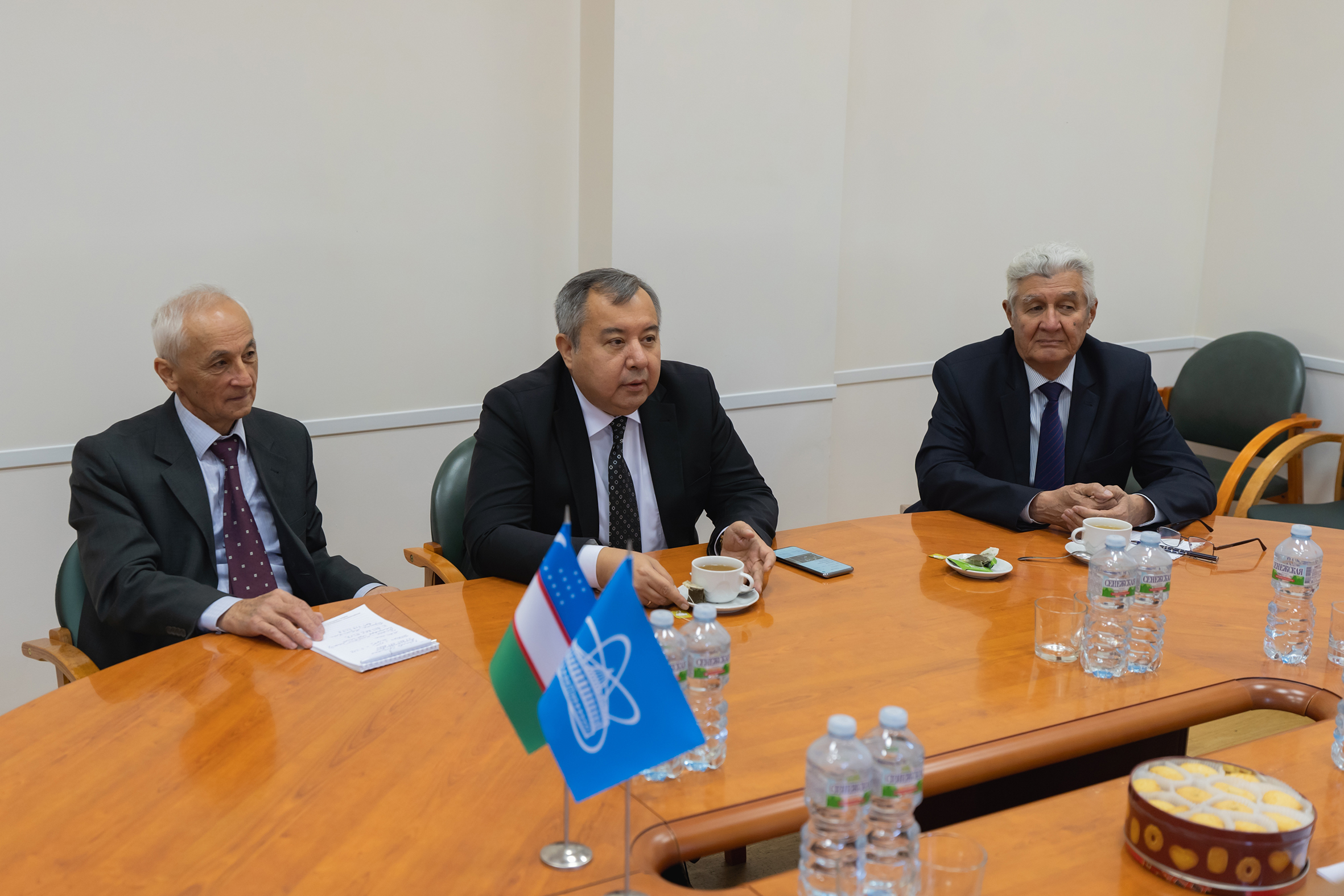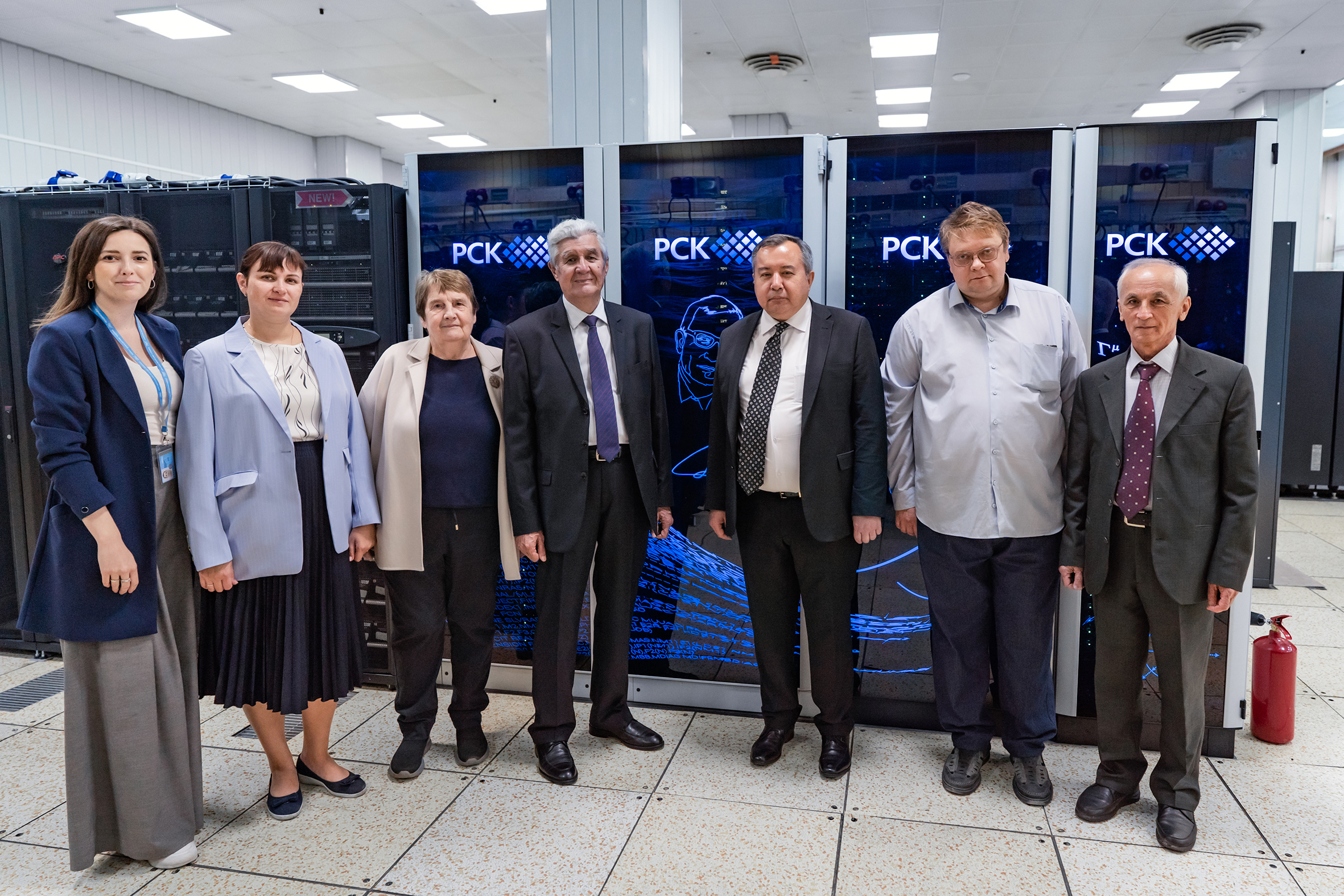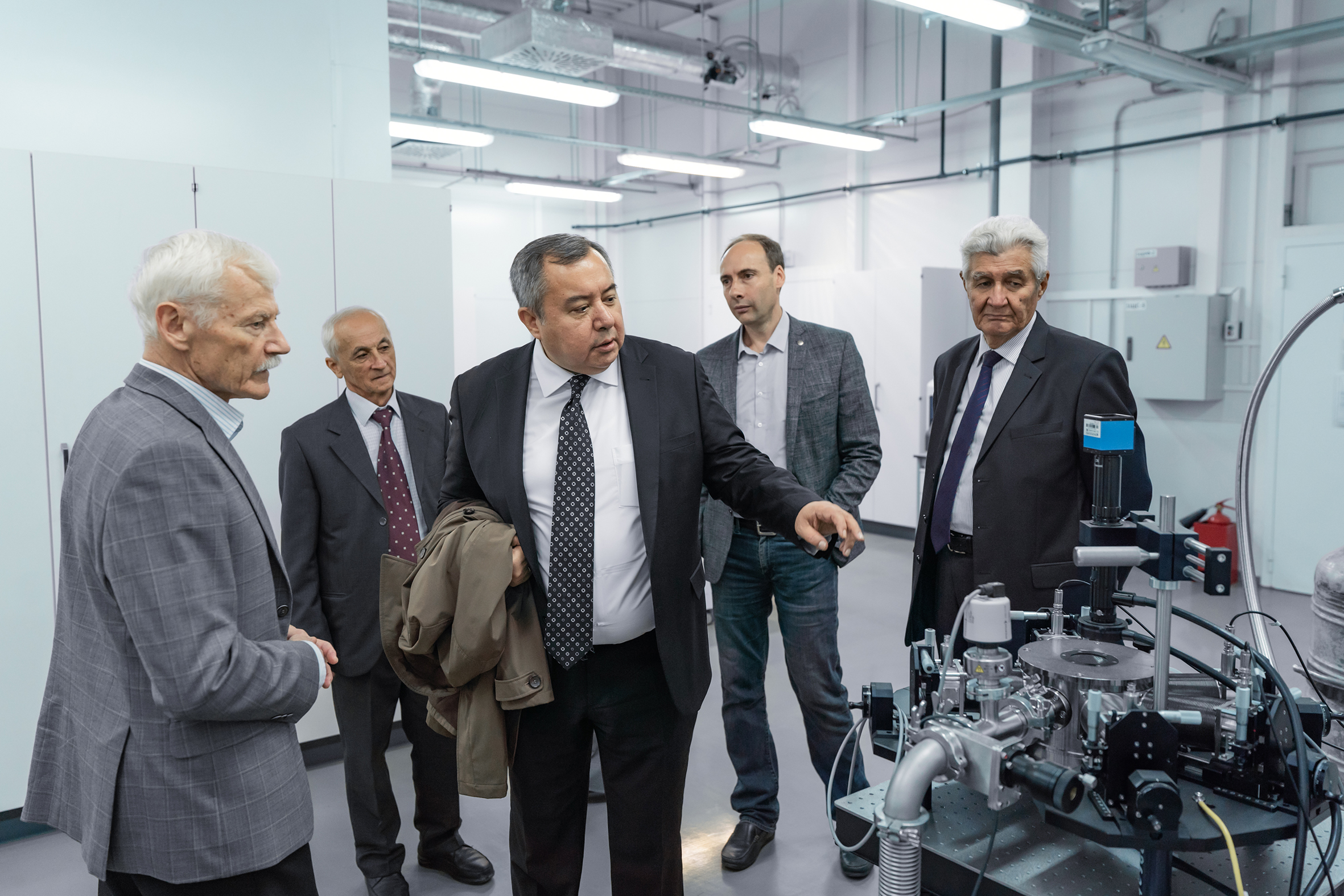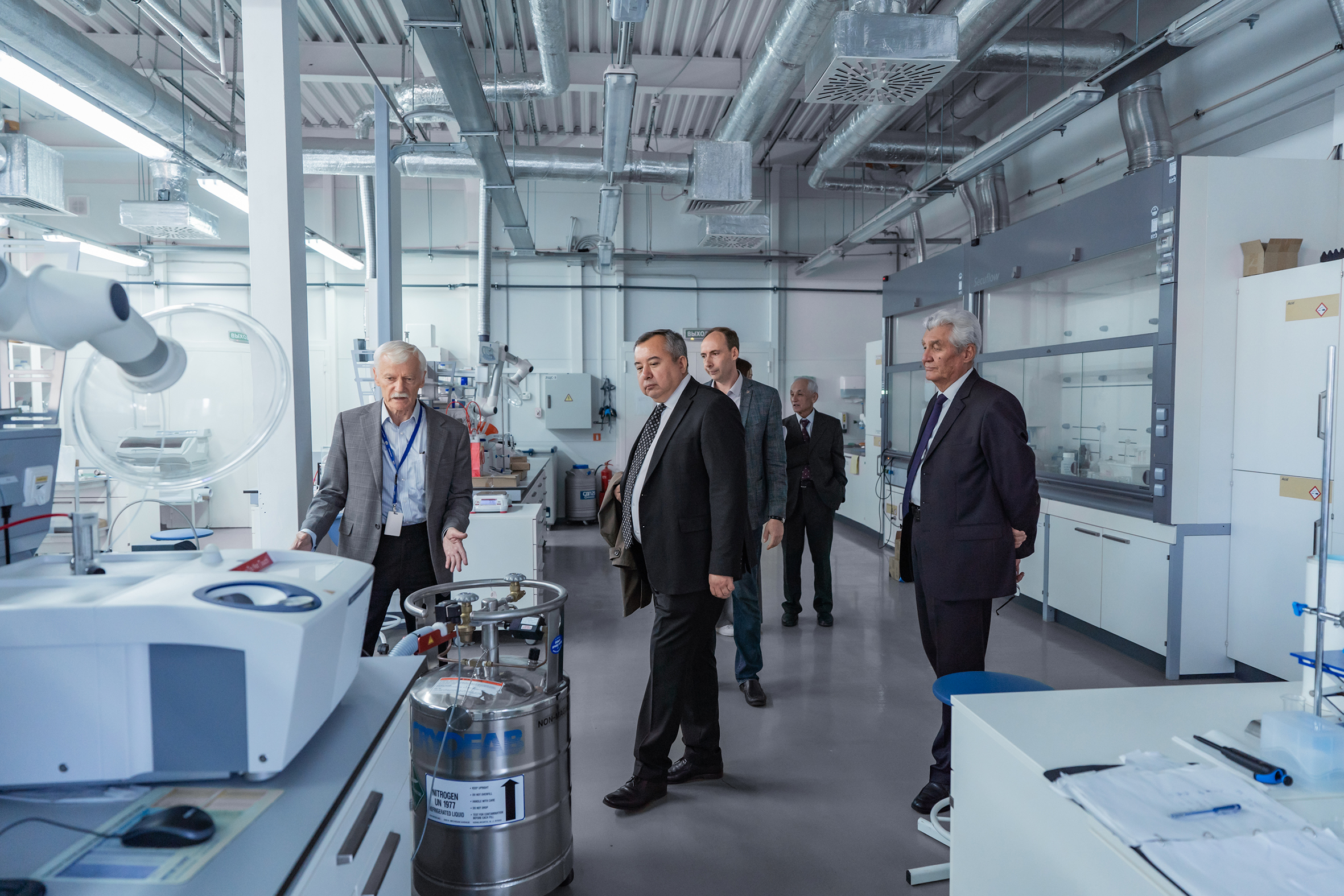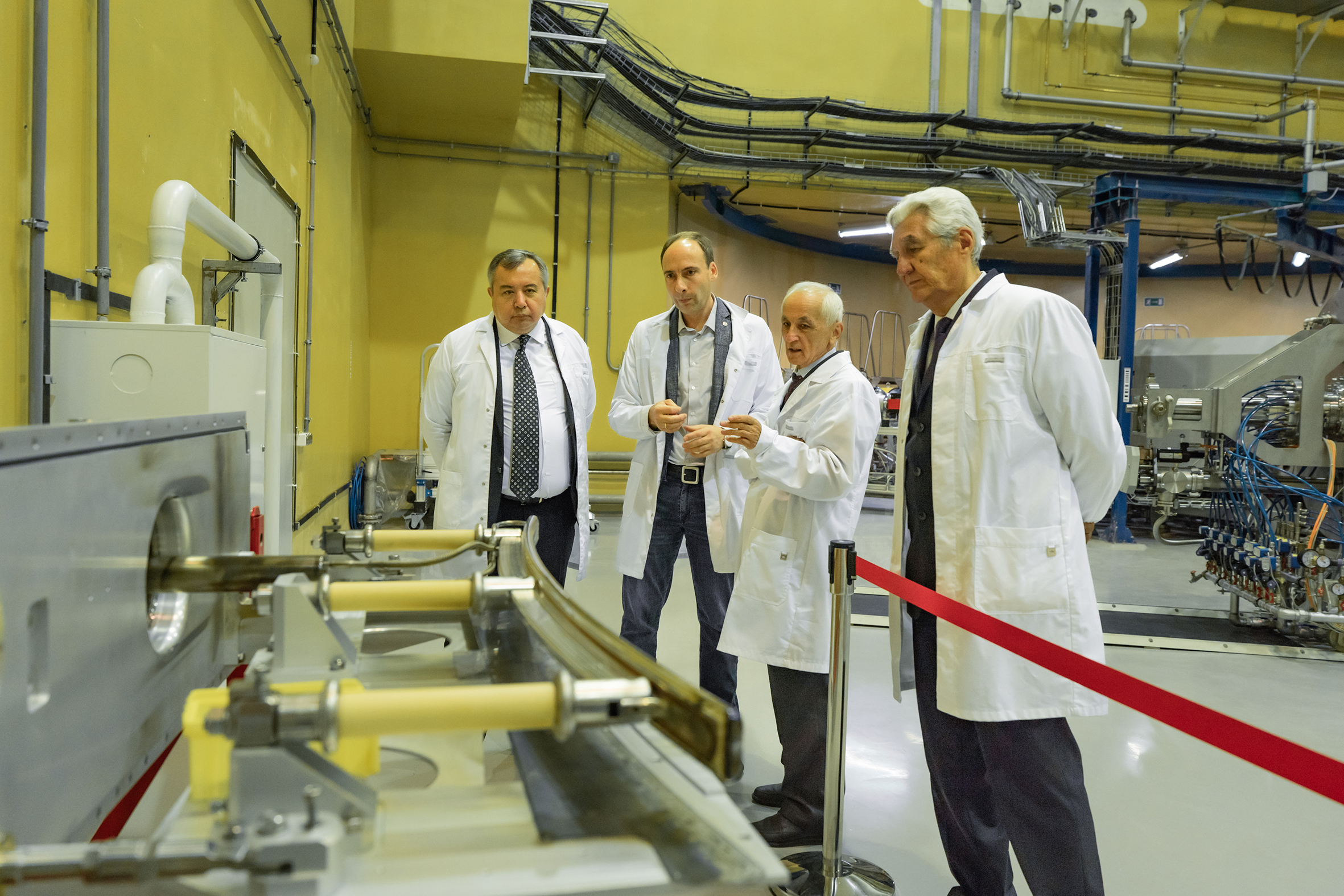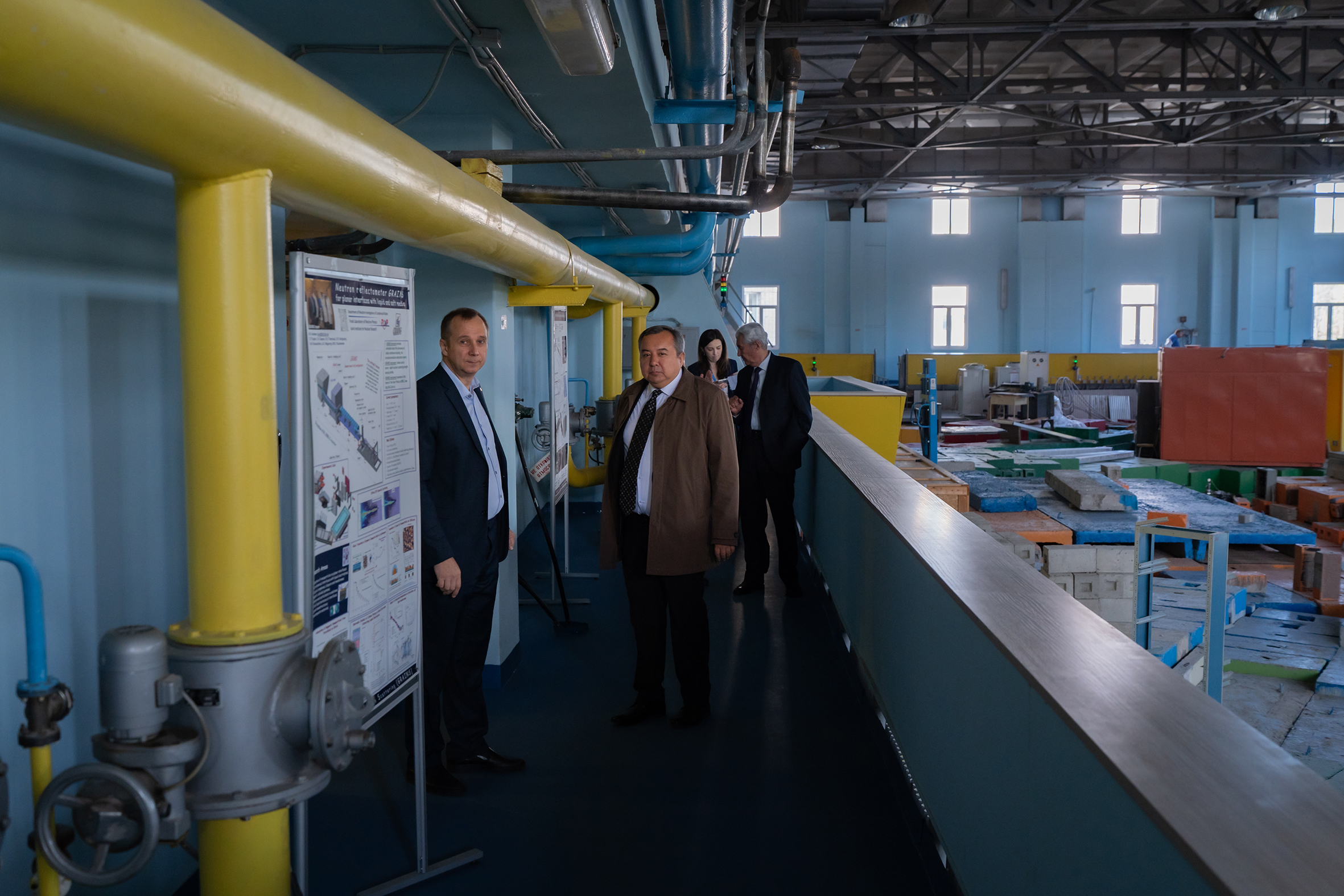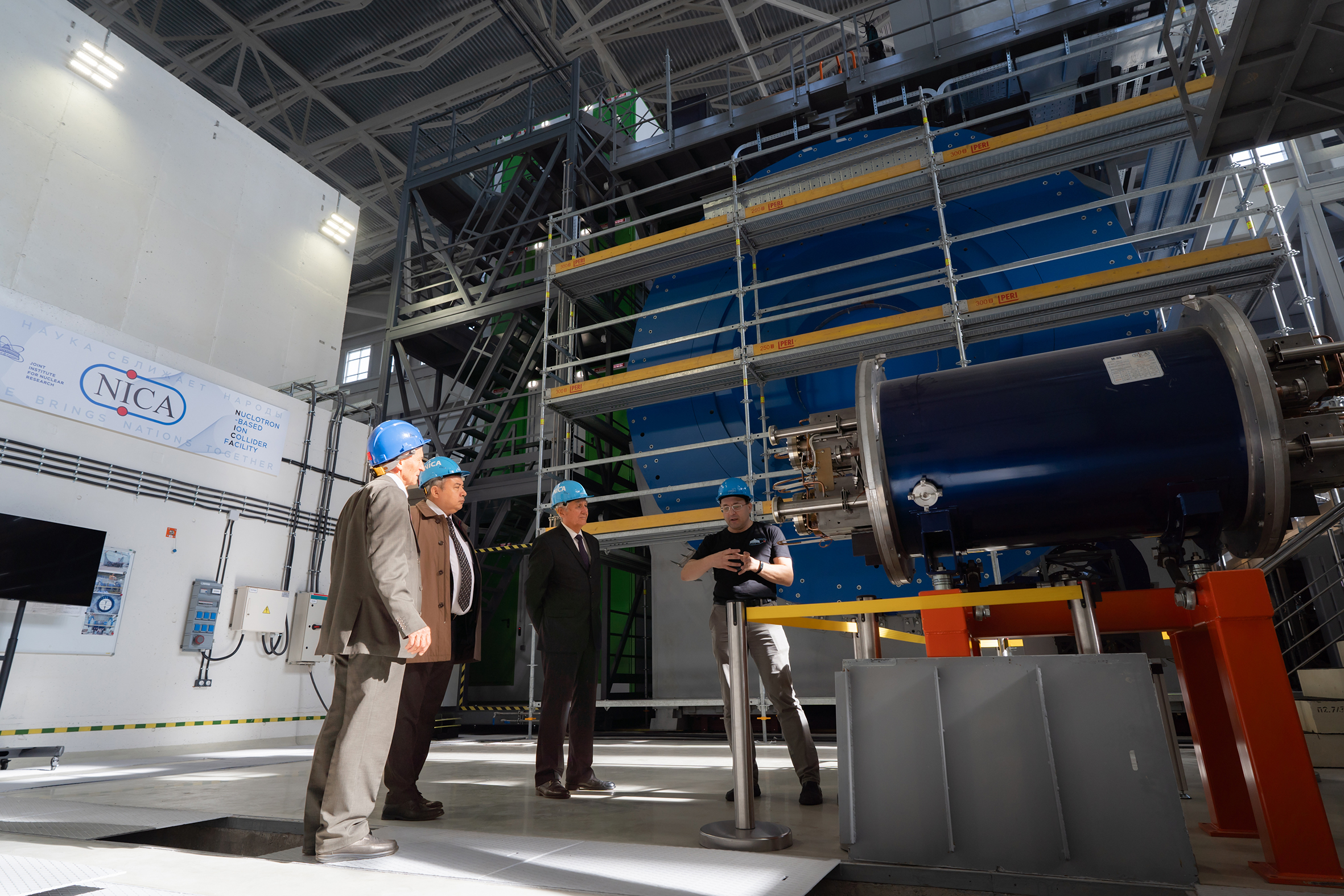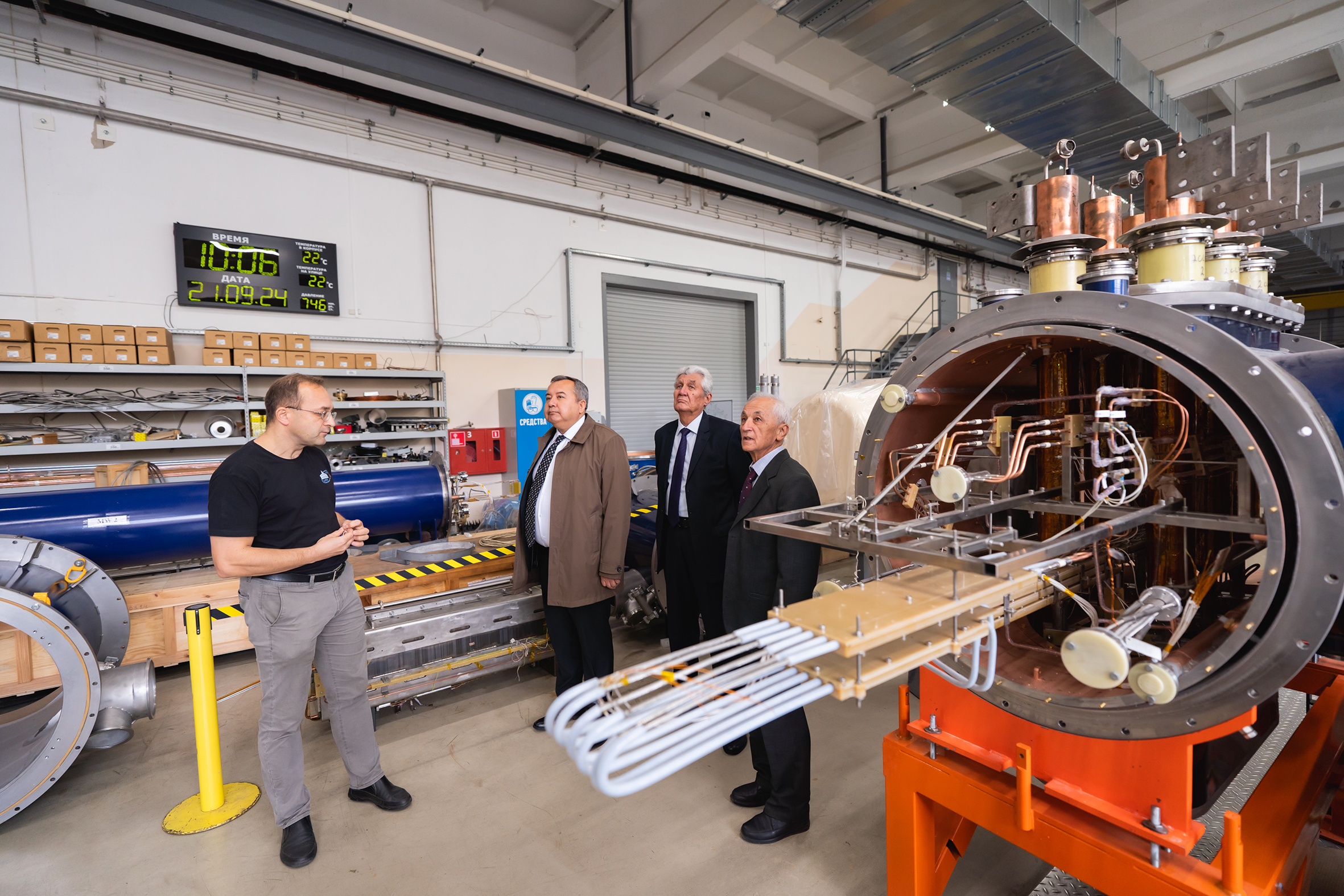Uzbekistan–JINR: cooperation development prospects
News, 25 September 2024
On 21 September, the Joint Institute for Nuclear Research received a visit from representatives of the leadership of the Academy of Sciences of the Republic of Uzbekistan (AS RUz): AS RUz Acting President Sirojiddin Mirzaev and Vice President of the Academy Gayrat Bahadirov.
JINR Vice-Director Sergey Dmitriev welcomed the delegation. Among the meeting participants were Institute’s Chief Scientific Secretary Sergey Nedelko, Head of the International Cooperation Department Otilia-Ana Culicov, Deputy Director of the Laboratory of Neutron Physics Sergey Kulikov, and Head of the National Group of Uzbekistan at JINR Anvar Inoyatov.
“This is your first visit to JINR, and we are glad to welcome you to our shared Institute on the bank of the Volga River,” Sergey Dmitriev said. JINR Vice-Director expressed condolences on behalf of the Institute’s Directorate on the passing away of AS RUz President, Plenipotentiary Representative of the Republic of Uzbekistan to JINR, member of the Scientific Council of the Institute Bekhzod Yuldashev. “We share the grief of Bekhzod Yuldashev’s passing. He was a close friend of the Joint Institute, and this is a great loss for us,” said Sergey Dmitriev. The parties discussed bilateral organizational issues, including the participation of the delegation of Uzbekistan in the upcoming session of the Finance Committee and the meeting of the Committee of Plenipotentiaries, scheduled for November.
“Uzbekistan and JINR have a long history of cooperation dating back to the establishment of the Institute in the mid-50s. I am sure that the Academy of Sciences of Uzbekistani will continue to develop this tradition and strengthen the long-standing ties. Many Uzbekistan physicists have worked and defended their theses at JINR. Our young specialists actively participate in internships and schools held at the Institute. Joint work in personnel training is currently of particular importance, given that Uzbekistan is planning to develop nuclear energy,” Sirojiddin Mirzaev stressed.
Another topic for discussion were bilateral cooperation prospects in fundamental and applied research. In particular, the parties expressed interest in developing medical radioisotopes and studying cultural heritage sites using neutron activation analysis and radiography. The potential of using JINR precision inclinometers at seismic stations in Uzbekistan for predicting earthquakes was of interest as well. Sergey Dmitriev noted that JINR is ready to accept young specialists from Uzbekistan for internships and joint research.
As part of the visit, the AS RUz delegation visited VBLHEP, FLNR, FLNP, and MLIT at JINR and got introduced to the infrastructure of the Institute and the range of research carried out. Following the visit, Sirojiddin Mirzaev gave a comment for the JINR website:
“Taking into account that close scientific cooperation has been established between JINR and Uzbekistan scientists for many years, earlier I had heard a lot of positive things about the Institute’s work, and today I saw it all with my own eyes and received detailed, comprehensive information about JINR. I was impressed by the multidisciplinarity of the Institute’s scientific research: JINR science is not only about nuclear physics and synthesis of new chemical elements. There are topical areas such as radiation biology, condensed matter physics, and materials science. In my opinion, we have a very great potential for partnership, and we need to work in this direction.
At the meeting at the Institute’s Directorate, a preliminary agreement was reached on holding JINR Days in Uzbekistan in spring 2025. The event aims to introduce the scientific community of Uzbekistan to the research opportunities of JINR and the prospects of collaboration with our academic institutions and educational establishments. The establishment of personal contacts between scientists alongside the event will contribute to the achievement of the objectives. For example, it was very interesting to visit the Nanocentre of the Laboratory of Nuclear Reactions, where we toured the best equipped laboratories and were told about the methodology of polymer membrane production. We have a lot of interesting developments in this area, and our scientific teams could successfully work together in this direction. Cooperation in the field of personnel training is being supported. Young Uzbekistan scientists can undertake internships here at JINR, get acquainted with advanced theoretical and experimental research in nuclear physics.
Bekhzod Yuldashev created an extensive network of working contacts between scientists of Uzbekistan and JINR, after his departure many of his students remained both here in Dubna and here in Uzbekistan. He has continued and strengthened the traditions of the relationship with JINR. The purpose of our visit was to confirm the interest of the Academy of Sciences of Uzbekistan to further strengthen ties with JINR, and together with the Directorate of the Institute we will move in this direction”.
